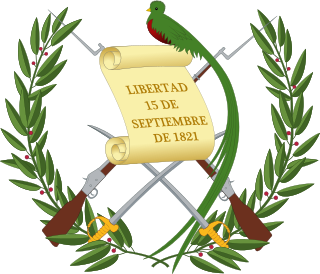Related Research Articles

The Spanish Constitution is the democratic law that is supreme in the Kingdom of Spain. It was enacted after its approval in a constitutional referendum, and it is the culmination of the Spanish transition to democracy. The Constitution of 1978 is one of about a dozen of other historical Spanish constitutions and constitution-like documents; however, it is one of two fully democratic constitutions. It was sanctioned by King Juan Carlos I on 27 December, and published in the Boletín Oficial del Estado on 29 December, the date in which it became effective. The promulgation of the constitution marked the culmination of the Spanish transition to democracy after the death of general Francisco Franco, on 20 November 1975, who ruled over Spain as a military dictator for nearly 40 years. This led to the country undergoing a series of political, social and historical changes that transformed the Francoist regime into a democratic state.

The Constitution of South Africa is the supreme law of the Republic of South Africa. It provides the legal foundation for the existence of the republic, it sets out the rights and duties of its citizens, and defines the structure of the Government. The current constitution, the country's fifth, was drawn up by the Parliament elected in 1994 in the South African general election, 1994. It was promulgated by President Nelson Mandela on 18 December 1996 and came into effect on 4 February 1997, replacing the Interim Constitution of 1993. The first constitution was enacted by the South Africa Act 1909, the longest-lasting to date. Since 1961, the constitutions have promulgated a republican form of government.

The Constitution of the Italian Republic was enacted by the Constituent Assembly on 22 December 1947, with 453 votes in favour and 62 against. The text, which has since been amended sixteen times, was promulgated in an extraordinary edition of Gazzetta Ufficiale on 27 December 1947. The Constituent Assembly was elected by universal suffrage on 2 June 1946, on the same day as the referendum on the abolition of the monarchy was held. The election was held in all Italian provinces. The Constitution was drafted in 1946 and came into force on 1 January 1948, one century after the Constitution of the Kingdom of Italy, the Statuto Albertino, had been enacted.

The Constitution of the Republic of Korea is the supreme law of South Korea. It was promulgated on July 17, 1948 and last revised on October 29, 1987.

Minister of Home Affairs and Another v Fourie and Another; Lesbian and Gay Equality Project and Others v Minister of Home Affairs and Others, [2005] ZACC 19, is a landmark decision of the Constitutional Court of South Africa in which the court ruled unanimously that same-sex couples have a constitutional right to marry. The judgment, authored by Justice Albie Sachs and delivered on 1 December 2005, gave Parliament one year to pass the necessary legislation. As a result, the Civil Union Act came into force on 30 November 2006, making South Africa the fifth country in the world to recognise same-sex marriage.

The Constitution of the Republic of Chad is the supreme law of Chad. Chad's seventh constitution, it was adopted in 1996, six years after President Idriss Déby rose to power following a successful rebellion against President Hissène Habré, this formal document establishes the framework of the Chadian state and government and enumerates the rights and freedoms of its citizens. In its current form, the contents of the Constitution include a preamble, 16 parts and 225 articles.

The present Constitution of Botswana commenced on September 30, 1966.

The Constitution of Guatemala is the supreme law of the Republic of Guatemala. It sets the bases for the organization of Guatemalan government and it outlines the three main branches of Guatemalan government: executive branch, legislative branch, and judicial branch.
Catherine "Kate" O'Regan is a former judge of the Constitutional Court of South Africa. From 2013 to 2014 she was a commissioner of the Khayelitsha Commission and is now the inaugural director of the Bonavero Institute of Human Rights at the University of Oxford.

South African property law regulates the "rights of people in or over certain objects or things." It is concerned, in other words, with a person's ability to undertake certain actions with certain kinds of objects in accordance with South African law. Among the formal functions of South African property law is the harmonisation of individual interests in property, the guarantee and protection of individual rights with respect to property, and the control of proprietary relationships between persons, as well as their rights and obligations. The protective clause for property rights in the Constitution of South Africa stipulates those proprietary relationships which qualify for constitutional protection. The most important social function of property law in South Africa is to manage the competing interests of those who acquire property rights and interests. In recent times, restrictions on the use of and trade in private property have been on the rise.
The South African law of delict engages primarily with ‘the circumstances in which one person can claim compensation from another for harm that has been suffered’. JC Van der Walt and Rob Midgley define a delict ‘in general terms [...] as a civil wrong’, and more narrowly as ‘wrongful and blameworthy conduct which causes harm to a person’. Importantly, however, the civil wrong must be an actionable one, resulting in liability on the part of the wrongdoer or tortfeasor.
K v Minister of Safety and Security is an important case in the South African law of delict and South African constitutional law. It was heard by the Constitutional Court on May 10, 2005, with judgment handed down on June 13. Langa CJ, Moseneke DCJ, Madala J, Mokgoro J, O'Regan J, Sachs J, Skweyiya J, Van der Westhuizen J and Yacoob J presided. W. Trengove SC appeared for the applicant; PF Louw SC appeared for the respondent. The applicant's counsel was instructed by the Women's Legal Centre, Cape Town. The respondent's attorney was the State Attorney, Johannesburg.
Minister of Safety and Security v Luiters is an important case in the South African law of delict. It was heard in the Supreme Court of Appeal (SCA) on March 7, 2006, with judgment delivered on March 17. Mpati DP, Farlam JA, Navsa JA, Cloete JA and Van Heerden JA presided. RT Williams SC appeared for the appellant and HM Raubenheimer SC for the respondent. The appellant's attorneys were the State Attorneys, Cape Town and Bloemfontein. The respondent's attorneys were Smith & De Jongh, Bellville; Milton de la Harpe, Cape Town; and Honey Attorneys, Bloemfontein. The case was an appeal from a decision in the Cape Provincial Division by Thring J. A subsequent application to appeal it further to the Constitutional Court was rejected.
Minister of Safety and Security v Luiters, an important case in the South African law of delict, was heard in the Constitutional Court on August 17, 2006. Langa CJ, Moseneke DCJ, Madala J, Mokgoro J, Nkabinde J, O'Regan J, Sachs J, Van Der Westhuizen J, Yacoob J and Kondile AJ presided, handing down judgment on November 30. W. Trengove SC and RT Williams SC appeared for the applicant, and HP Viljoen SC and HM Raubenheimer SC for the respondent. The State Attorneys, Cape Town, represented the applicant; the respondent's attorneys were Smith & De Jongh, Bellville.
South African administrative law is the branch of public law in that country which regulates the legal relations of public authorities, whether with private individuals and organisations or with other public authorities, or better say, in present-day South Africa, which regulates "the activities of bodies that exercise public powers or perform public functions, irrespective of whether those bodies are public authorities in a strict sense." According to the Constitutional Court, administrative law is "an incident of the separation of powers under which the courts regulate and control the exercise of public power by the other branches of government."
The Constitutional Court, in Carmichele v Minister of Safety and Security and Another , an important case in South African criminal, delict and constitutional law, found that the State could be held delictually liable for damages arising out of the unlawful omissions of its servants. In casu, the conduct of the police and a prosecutor had resulted in the release of a person, charged with rape, on his own recognisance. This person had subsequently assaulted the complainant.
In Van Eeden v. Minister of Safety and Security , an important case in the South African of law of delict as well as the country's criminal law, the appellant, Ghia Van Eeden, was assaulted, raped, and robbed by a known, dangerous criminal who had escaped from police custody. The court held that the state was obliged to protect individuals by taking active steps to prevent violations of the constitutional right to freedom and security of the person, inter alia by protecting everyone from violent crime. It was also obliged under international law to protect women specifically from violent crime.
Offering citizens access to state-held information is "one of the most effective ways of upholding the constitutional values of transparency, openness, participation and accountability." Currie and De Waal suggest that accountability is unattainable if the government has a monopoly on the information that informs its actions and decisions. Access to information is not only fundamental to a properly-functioning participatory democracy, it also increases public confidence in government and enhances its legitimacy. There are also, according to Cora Hoexter,
many other benefits to be had. For instance, access to information discourages corruption, arbitrariness and other improper governmental conduct. It facilitates the protection of rights, something that is easily demonstrated in the area of administrative justice. Like reasons for administrative action, access to state-held information can be of enormous assistance to a person who suspects that her rights to administrative justice have been infringed and is in the process of building a case.
Zealand v Minister of Justice is an important case in South African constitutional law.
The Constitutional litigation in South Africa is an area of the law that deals with the rules and principles concerning constitutional matters. It examines the jurisdiction of the Constitutional Court, the High Court and the Supreme Court of Appeal. It considers the rules peculiar to these courts that are relevant to constitutional litigation, such as the admission of an amicus curiae, the duty to raise a constitutional matter as early as possible in proceedings, and the duty to join the relevant organ of state in a case involving a constitutional issue.
References
- Minister of Safety and Security v Van Duivenboden 2002 (87) SA 431 (SCA).